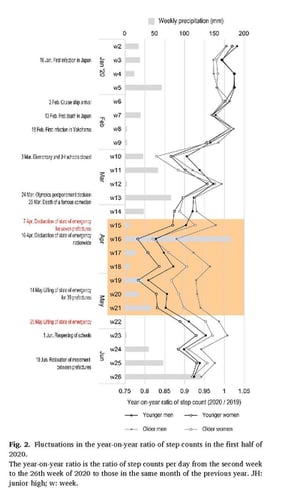Authors
Kimihiro Hino, Yasushi Asami
Abstract
In Japan, a state of emergency (SoE) was declared in early April 2020 until late May in response to the first wave of the coronavirus disease (COVID-19). This longitudinal study analyzed the step counts of 18,817 citizens in Yokohama city in the first half of 2020 compared to the previous year, and investigated the association between the change in step counts and the individuals’ neighborhood environment by sex and age using generalized linear mixed models. Step counts decreased especially in women and non-elderly people during the SoE. Older women were more susceptible to the neighborhood environment: high walkability (i.e., high population density, proximity to railway stations) adversely affected their step counts, whereas proximity to large parks came to have a positive effect during the SoE.
 Health & Place:https://www.sciencedirect.com/science/article/pii/S135382922100040X
Health & Place:https://www.sciencedirect.com/science/article/pii/S135382922100040X